Saad Hariri returns to Lebanon ready to form new government

Since the explosion in Lebanon's capital, the repercussions have been felt at every possible level. The first consequences came just a few days later with the resignation of Prime Minister Hassan Diab, which has left a country that is now going through its worst moments. The current impasse in the Lebanese state represents a crossroads of the utmost complexity. The confrontation between the prime minister, Saad Hariri, and the president, Michel Aoun, is keeping a society on tenterhooks as it awaits the necessary measures to alleviate the crisis and win the confidence of an international community that has made all aid conditional on real reforms.
Debts are suffocating a country whose citizens are flooding the streets with protests and chaos day in and day out, demanding minimally dignified living conditions. Faced with the inability and immobility of the political class, Prime Minister Saad Hariri decided to return to Lebanon committed to quickly forming a new government of technocrats to implement economic, financial and administrative reforms in accordance with a French initiative to establish a road map for the Mediterranean country backed by the main Lebanese politicians.
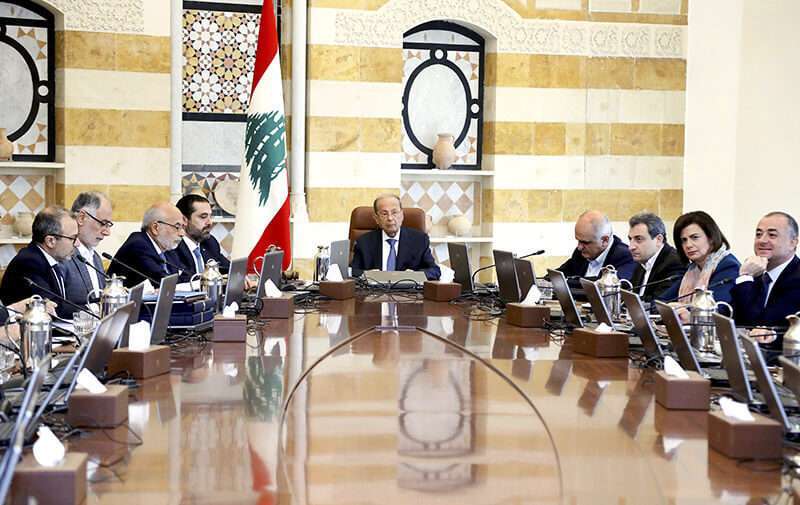
Despite his return, the country cannot yet claim victory when it comes to forming a Government. However, achieving this task is crucial to unblock the economic aid promised by EU countries, which is necessary for the reconstruction of Beirut, which was devastated after the explosion of the port on 4 August.
French President Emmanuel Macron leads the EU's donor group and has travelled to Beirut in recent months to mediate the formation of a new administration. He has made it clear that the country needs to resolve its serious corruption problems before financial aid can be delivered, and as part of the solution the EU is calling for reforms to address structural difficulties in electricity supply and banking supervision.
But to achieve this first requires internal agreements between the various Lebanese political movements, something that has so far not been possible. Lebanon's complex sectarian-based political system makes major decision-making a challenge. Power is distributed among the country's Shiites, Sunnis and Christians, who are often sharply divided.
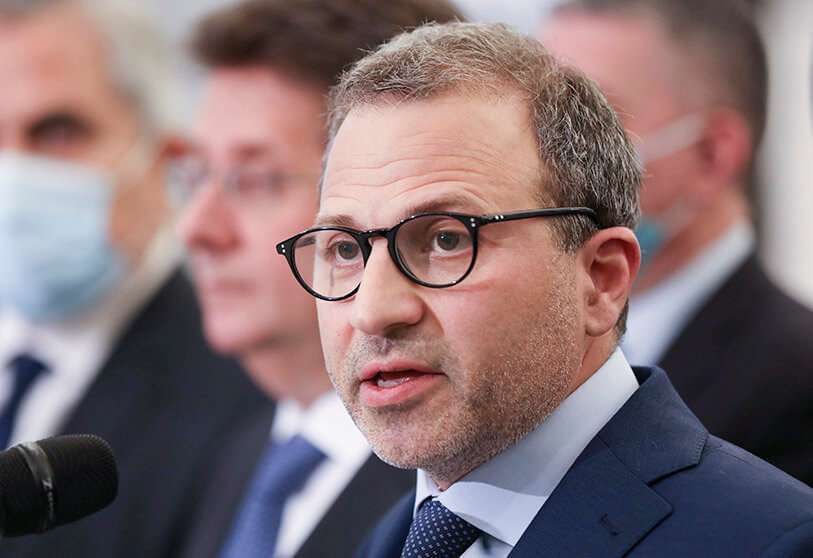
Hariri resigned in October 2019 as he bowed to popular pressure in the face of a crippling economic recession, with the Lebanese pound drastically losing its value. The lack of liquidity prompted Lebanese banks to limit withdrawals and dollar transfers from September 2019. These situations triggered mass protests that ended with his resignation. He was replaced by Hassan Diab, who resigned on 10 August, amid a new wave of social pressure following the explosion in the port of the Lebanese capital. The legislature then appointed Mustafa Adib, but he too resigned less than a month after taking office, citing difficulties between the various political benches in forming a cabinet. It is clear that Hariri, back as prime minister, faces major challenges. He himself acknowledged that this is a "last chance" to save the country.
It is the third time that the Sunni politician has held the post and the Executive he forms will be the fourth led by him, since during his second term as president the country was without a Government for nine months. Hariri, who was the only candidate for the post, was backed by 65 of the 118 MPs who took part in the parliamentary consultations.
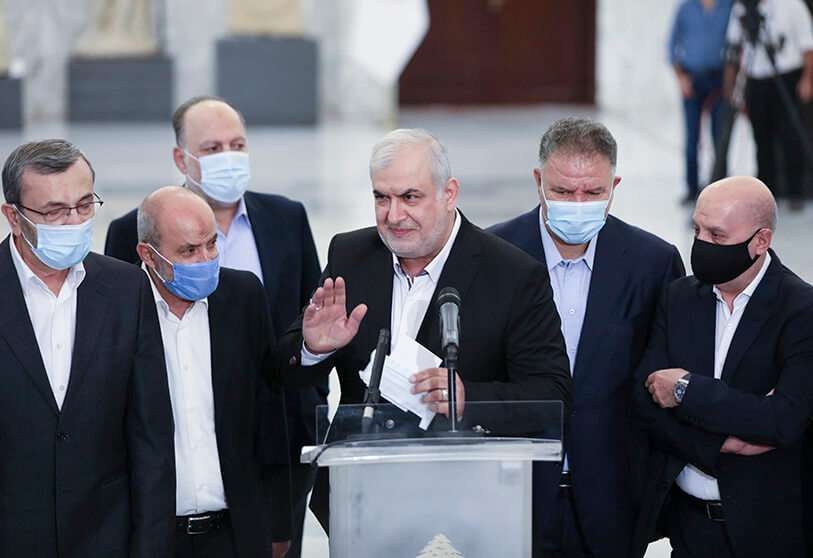
The Lebanese are also sceptical about the formation of a government of technocrats, as the previous government was hamstrung by the interference of the main political-confessional parties, rendering it unable to undertake such reform. Hariri's appointment was postponed for a week in an attempt to achieve the broadest possible consensus among political forces. The two main Christian parties (Lebanese Forces, led by Samir Geagea, and the Free Patriotic Movement, to which President Aoun belongs) remain sceptical. Prime Minister-designate Saad Hariri only seems to have the support of the largest Sunni bloc, the Shia Amal movement and Walid Jumblatt's Progressive Socialist Party, although Hezbollah also seems inclined to keep him as prime minister-designate.
In the coming days Hariri will meet with Lebanese parliamentary speaker Nabih Berri for a crucial meeting. Berri took a clear position towards President Michel Aoun a few weeks ago, making it clear to him that the parliament supported Hariri's appointment to form a new government and that he should not put obstacles in the way. Berri held Aoun responsible for the continued suffering of Lebanese society as a result of his rejection of Hariri's Cabinet nominations, adding that the president had no right to block the prime minister-designate.
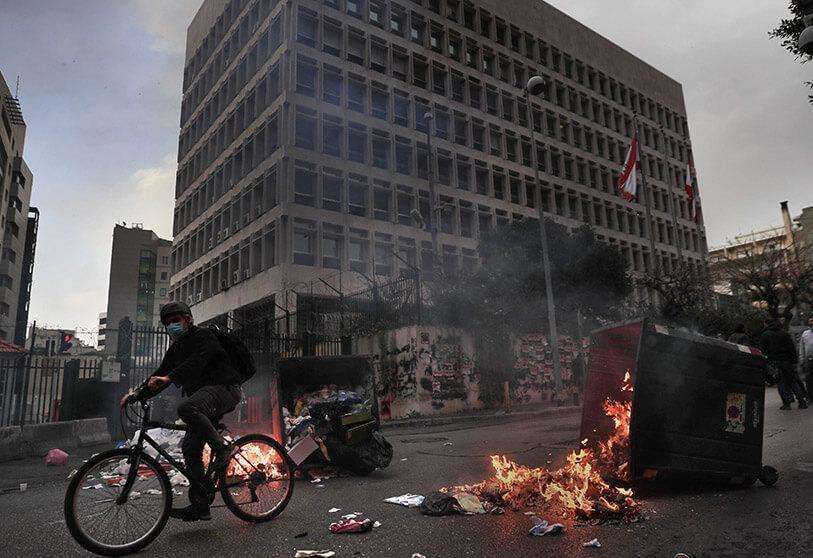
The open confrontation between the Maronite president and the speaker of the Shiite parliament has never reached this intensity before. Lebanese political sources believe that the parliament speaker's attitude reflects a clear discomfort with Michel Aoun's actions and indicates that the relationship between the president and Berri has entered a stage of complete disconnection between them.
For his part, Hariri, who had threatened to give up the chance to form a government, now has a strong ally to support his position as he continues to clash with the president and his son-in-law, the head of the Free Patriotic Current party, Gibran Bassil, who are obstructing the nomination of the executive because they consider Hariri's appointment of Christian ministers to be unconstitutional.
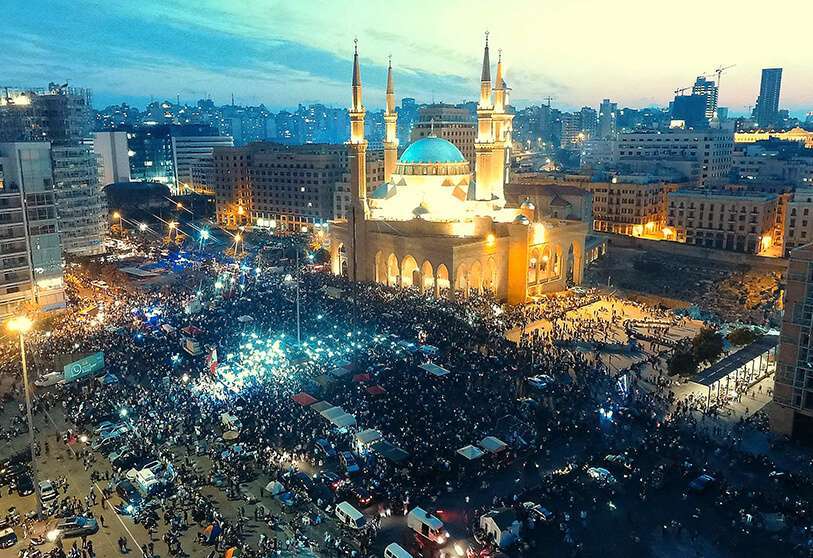
In recent weeks, the severe economic crisis has worsened with a further plunge in the value of the local currency, skyrocketing inflation, continuous power cuts and major shortages of basic commodities such as medicines, medical supplies and fuel are plunging Lebanon into an unprecedented deep crisis.
As the country nears the first anniversary of the August 4 Beirut port explosion that killed more than 200 people, Lebanon is sinking into a severe economic and financial crisis. With top leaders arguing over the formation of a cabinet in this country ruled by confessionalism. Street protests are not the only headaches Lebanon faces.










